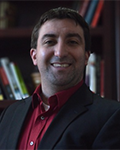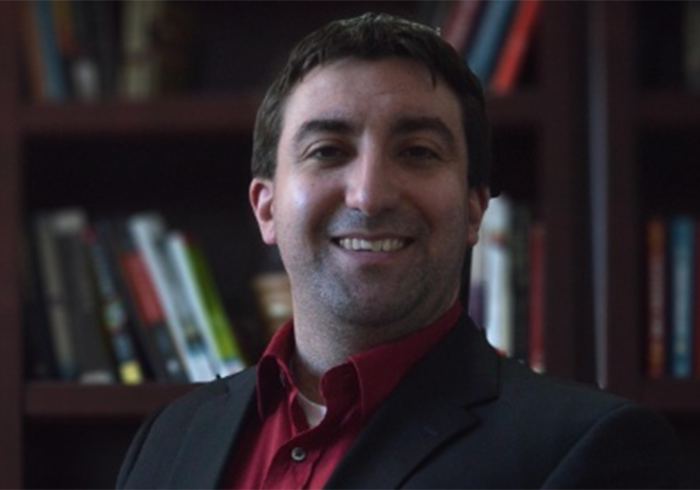We’re taking time over the following weeks to get to know the members of the GSA’s Early Career Scientist Committees. Join us every week to learn more about our early career scientist advocates.

Tony Patelunas
Career Development Subcommittee
University of Connecticut
Research Interests
Waddington explained developmental specification as a ball rolling down a hill; as the ball rolls, it becomes committed to a trajectory and cannot go back up the hill to change its path. My research examines the trajectory and commitment of muscle progenitors in the mouse limb during embryonic development. As the limb bud grows, muscle progenitors proliferate and begin to differentiate into muscle fibers, and the muscle stem cell is specified from this population. These adult stem cells, termed satellite cells, are essential in postnatal muscle hypertrophy and adult muscle regeneration. Understanding how this essential stem cell is genetically specified during development is key to recapitulating muscle regeneration through therapeutics. My work uses transgenic mouse models to investigate the necessity and sufficiency of genes such as MyoD and Myf5 for satellite cell creation.
As a PhD-trained scientist, you have many career options. What career paths interest you the most?
As I’ve moved through graduate school and broadened my view of the scientific enterprise, three careers have stood out as possibilities: consulting, policy, and entrepreneurship. What these three roles have in common is the opportunity to help direct scientific progress from a high level.
If I were to pursue consulting, I’d be interested in finding a life science consulting agency that works with biotechnology companies to evaluate product development and market strategy. The fast-paced environment, short-term projects, and ability to stay connected to cutting-edge biology attracts me.
If I were to pursue policy, I’d be interested in the administrative responsibilities of funding agencies, such as program development and strategic plan design. Public agencies such as the NIH and NSF are constantly evaluating their programs and seeking the best way to support research. During my public policy curriculum at UConn and my time as President of the Graduate Student Senate, I’ve enjoyed analyzing program funding and providing recommendations for project direction, and these experiences have shown me that policy could be a good fit.
If I were to pursue entrepreneurship, the possibilities are endless. I’ve participated in entrepreneurship programs at UConn for my genetics startup ShrimpBrite, and new ideas are always percolating. What I enjoy most about the startup environment is that you have to take on many roles at any given time. I like the potential for society and science to power innovation.
In addition to your research, how else do you want to advance the scientific enterprise?
I want to build community as long as I’m involved in the scientific enterprise, and I envision contributing to two important sectors: innovation and funding. I believe innovation comes through interdisciplinary collaboration. My own startup, ShrimpBrite, arose from merging my past experience and hobby of aquaculture with my current work in mouse genetics. The greatest innovations often come when experts in disparate fields share a passing conversation that sparks a collaboration. I hope to facilitate interactions that foster this kind of growth.
Community building around funding could come in many forms. As competition for public funds increases and the pool of funding decreases, new ways to fund basic science need to be developed. I envision entrepreneurship and philanthropy playing large roles. Facilitating collaboration between basic researchers and business entrepreneurs opens new funding avenues through angel investment and venture capital. Similarly, private foundations might be interested in funding projects that contribute to their mission, some of which could align with basic research.
As a leader within the Genetics Society of America, what do you hope to accomplish?
Serving on the Career Development Subcommittee provides me with a unique community building opportunity: reaching out to non-academic scientists and interviewing them for the Decoding Life blog series. The inclusion of non-academic scientists within GSA is essential to furthering the Society’s goals. I hope to also bring my Career Development Subcommittee experience to GSA conferences by using knowledge I gain from the professionals I meet to provide outcome-oriented skill programming. The GSA currently engages in professional development for graduate students and postdocs, and I want to help expand it.
Previous leadership experience
- Student-Director—UConn Foundation
- Member Liaison—DOCjobs
- Two-term President—UConn Graduate Student Senate
- Founder & Treasurer —UConn Graduate Organization: Molecular and Cell Biology
- President—New Mexico State University Biology Graduate Student Organization
Contact
- Twitter: @TonysPants













